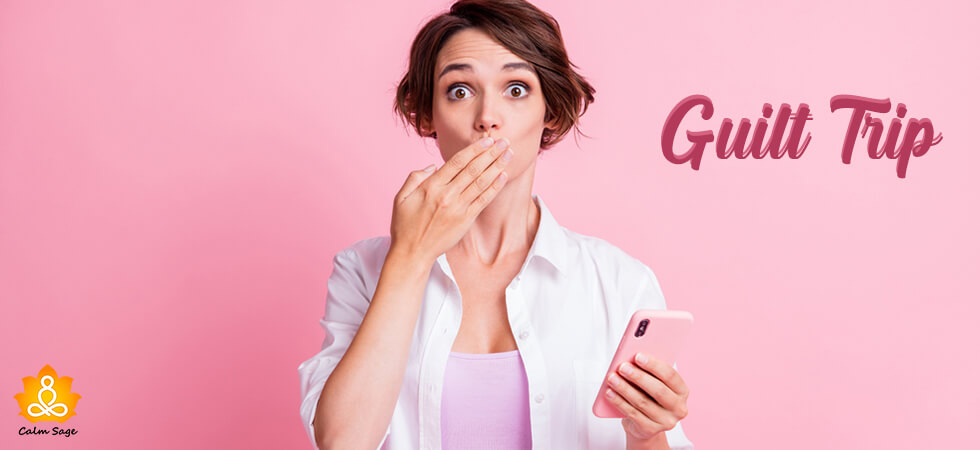Are You An Impulsive Buyer? Here’s How To Control The Behavior

I am sure many of us have already been in the situation of impulse buying. We visit a mall, notice the season-end sale in your favorite store and end up shopping with numerous things that were certainly not so much required.
What now? Low bank balance? Wardrobe stuffed with new items? Although occasional impulse purchases are not going to impact much, their regularity can cause addiction.
If we understand impulse buying in simple terms, it can be defined as unplanned purchases. Whether it is buying an extra tee shirt, a big electronic item, or a new PS5 because it had a great deal. If we see a survey that occurred in April 2021 of over 2000 people from ‘OnePoll’ and ‘SlickDeals’, Americans are known for making an average of 12 impulse purchases in one month.
Moreover, about 60% of people said that they feel very happy after impulse buying. The top three categories where people show impulse purchases are food & groceries, household items, and clothing.
Note that certain mental health conditions can be a cause for impulse buying. Researchers say that many patients with bipolar disorder use shopping as a method to seek peace and calm. Other disorders that may lead to impulse buying are:
- Substance use disorder
- ADD/ADHD
- Anxiety disorders
Impulse buying can lead you to spend unnecessary amounts of money for no reason. Moreover, this purchase may give happiness at first but this happiness is not long-lasting. The concept of ‘ugly’ purchases which may leave you in debt arises, thus causing mental stress, fights in the family, and further negative consequences.
Signs Of Shopping Addiction
As we know that impulse buying can cause addiction if not controlled in time, here are the common signs of shopping addiction.
- The financial health begins to fall down and there is high amount of debt on the credit cards
- Losing control while shopping
- More shopping so that you don’t feel guilty for previous purchases
- Spending way more than can be afforded
- Hiding shopping amount or all the purchases from the family members
How To Overcome Impulse Buying?
Try following these methods to control your spending and impulse purchases.
1. The Difference Between Needs & Wants
Want is a desire to buy or get something whereas the need is the requirement without which a task or life is incomplete. So if you go shopping next time and wish to avoid impulse buying, ask yourself if you need something or you just want it for your inner craving.
2. Avoid Giving Yourself Easy Access For Money
Even though credit cards seem like a good deal, using credit cards on a regular basis needs to be avoided. It’s because credit cards have become an easy source for people to purchase, some of them make it a habit that converts into impulse buying behavior.
3. Don’t Shop To Cheer
Feeling bored at home and having nothing to do? Cannot hangout with friends as they are busy? So find other ways to keep yourself entertained rather than choosing shopping as a cheerful option. Impulsive shopping shows immaturity, inability to take responsible decisions and lower intelligence level. Don’t let yourself fall into the trap!
4. Put A Waiting Period
Enforce yourself to go for a waiting period if your shopping habit is taking a toll on you. If you like something in the market, wait for a week. Plan out if you really want to have it or if it is actually the need of the hour. Find out if you actually have the budget to buy the item or you are planning to return it back to avoid impulse buying.
5. Don’t Make Shopping A Social Thing
Research says that impulse buyers use shopping to become more social and raise their status in front of others. They even face anxiety and lack of controlling power to manage their emotions. If you are also facing similar conditions then keep a check on it on a regular basis.
6. Pay Cash
Psychologists advise you to leave your credit card at home when you are going out shopping. The limit of cash will actually make you realize the amount needed to be spent and it can be done only with the amount you possess right now rather than the one you need to pay off later.
7. Seek Help
In case none of the above methods are helpful to control the urge of impulsive purchases or you are dealing with any mental health condition which leads you to shop impulsively, ask a therapist to help you out.
Find the triggers, problems within and solve them with the help of an online therapist rather than using shopping as a way to calm yourself down.
Compulsive vs Impulsive Buying
There is a substantial difference between compulsive buying and impulsive buying and it lies in internal motivation. Impulse purchases are mostly not planned and happen only in a particular moment due to external desire.
However, compulsive shopping is usually motivated from within. A person shopping compulsively will try to use shopping as a way to relieve stress and uncomfortable feelings like anxiety.
Wrap-Up
We hope that you have found signs if you are an impulsive buyer or not and are already willing to correct the method with your efficiency and intelligence. If CalmSage can help you in connecting you with a therapist, drop us an email at info@calmsage.com and let us also extend help for you.
Next Read:




















